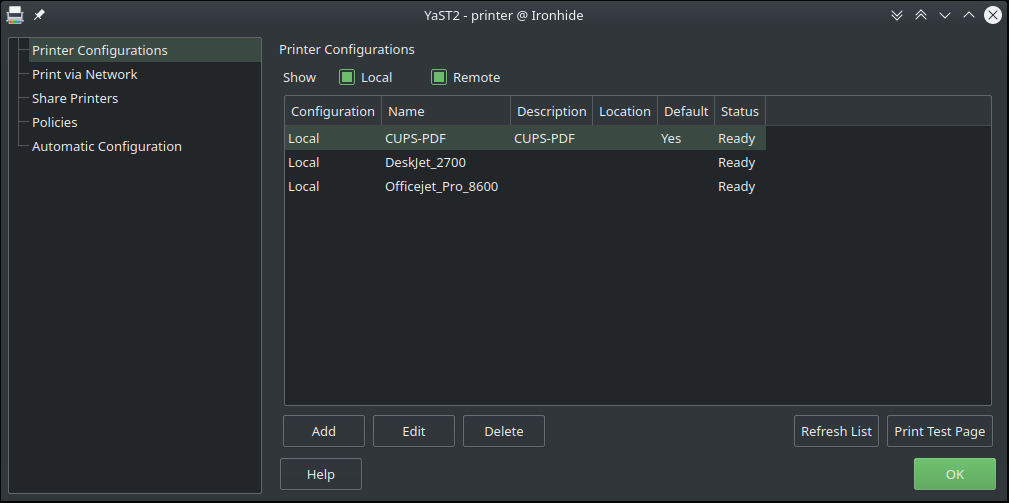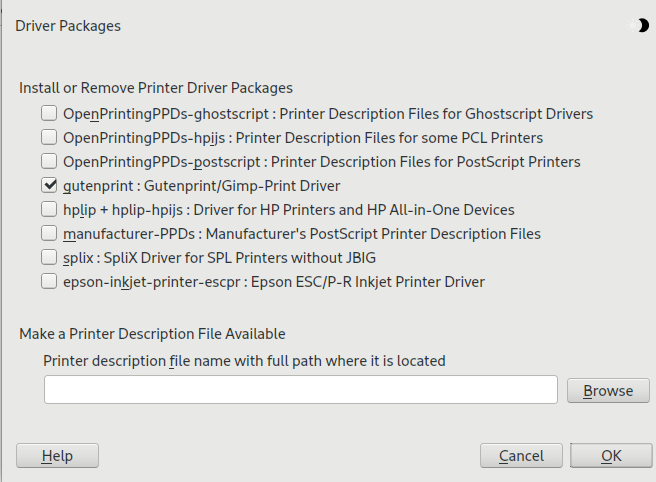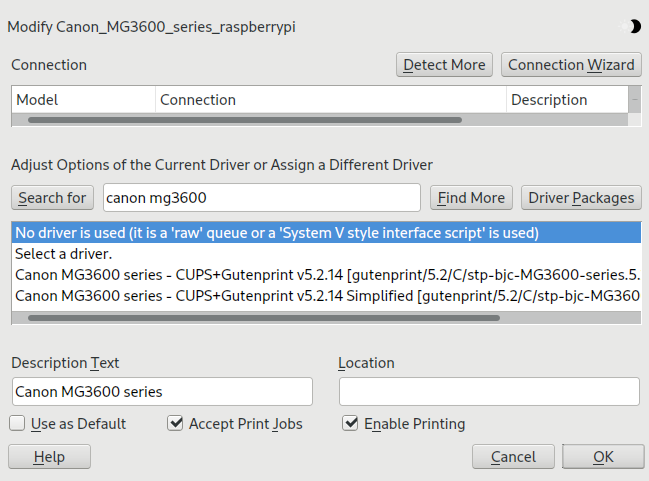I've been using Linux for 10y and never distro-hopped to solve a problem. Overall I've only used 3 distros as daily drivers. IMO you should look into making things work with a distro you like instead of looking for the perfect off the shelf distro.
Linux
From Wikipedia, the free encyclopedia
Linux is a family of open source Unix-like operating systems based on the Linux kernel, an operating system kernel first released on September 17, 1991 by Linus Torvalds. Linux is typically packaged in a Linux distribution (or distro for short).
Distributions include the Linux kernel and supporting system software and libraries, many of which are provided by the GNU Project. Many Linux distributions use the word "Linux" in their name, but the Free Software Foundation uses the name GNU/Linux to emphasize the importance of GNU software, causing some controversy.
Rules
- Posts must be relevant to operating systems running the Linux kernel. GNU/Linux or otherwise.
- No misinformation
- No NSFW content
- No hate speech, bigotry, etc
Related Communities
Community icon by Alpár-Etele Méder, licensed under CC BY 3.0
Yeah you're probably right, which distro do you use?
kubuntu and endeavouros
I second EndeavourOS. Nothing beats the arch wiki and arch user repository, and combining that with the easy and sane install of EndeavourOS makes it an almost perfect distro.
I’m not sure OP sounds like someone who into reading Arch News, learning about pacnew/pacsave, etc. that’s more for hobbyists. An ubuntu flavor or something like Zorin might be better for them and then stick with it and solve any problem that may show up.
To build off of the above poster, some things sometimes take some tweaking to make work. When you distro hop you're really just hopping to a different set of defaults and maybe a few relevant library differences. Learning what to do and how to do it can be daunting but when you get it its brilliant and then you have some idea what you need to do the next time you encounter a similar issue
what is your usecase?
Just gotta learn to fix stuff yourself. Highly unlikely for any distro to be perfect out of the box.
Easier said than done sometimes. That's the advantage of Ubuntu, Mint, etc. — they minimize the number of weird quirks you run into.
OP, my request/suggestion would be the following:
In order for us to better help you consider the following:
- Inform us on your hardware specs. You could even rely on the software found on linux-hardware.org for a (so-called) probe.
- Inform us on which distros you've tried. If possible, for each one of them list the following:
- What exactly didn't work?
- Did you try any troubleshooting?
On a more general note, you shouldn't feel the need to switch distros even if other distros might offer more convenient solutions.
Story time
When I was new to Linux, I wanted to rely on the Chromium browser for cloud gaming through Nvidia GeForce NOW's web platform. For some reason, I just wasn't able to get this to work on Fedora. Somehow, while still being mostly a newbie, I stumbled upon Distrobox and decided to give it a go in hopes of allowing me to overcome the earlier challenge by benefiting of the ArchWiki and the AUR through an Arch distrobox. And voila; -without too much effort- it just worked. More recently, after I've become slightly more knowledgeable on Linux, I just rely on a flatpak to get the same work done.
Moral of the story would be that there are a lot of different ways that enable one to overcome challenges like these. And unless you feel the need to go with a system that's (mostly) managed for you (à la uBlue)^[1]^, you will face issues every now and then. And the only way to deal with them would be to either setup^[2]^ (GRUB-)Btrfs+Timeshift/Snapper (or similar solutions) such that it automatically snapshots a working state that you might rollback to whenever something unfortunate befalls your system or to simply become ever so better equipped in troubleshooting them yourself.
- But therefore demands from you to engage with the system in a specific (mostly unique) way.
- Or rely on a distro that sets it up for you.
When I install Linux for friends and family the only distro I use anymore is Fedora. I have used just about every major distro, and Fedora is the only one that has "just worked" on every computer I have tried it on.
Love them, or hate them, Red Hat is by far the single biggest company in the Linux community, and their Red Hat Enterprise Linux is renowned for being stable, performant, and very well supported. Fedora is where most of the updates that make their way into RHEL are initially available, so with Fedora you get a cutting edge distro with the backing and resources of a massive corporation that employs many of the top Linux-desktop contributors.
If you want a distro that "just works" I strongly recommend you give Fedora a try.
You will get tons of distro recommendations, so here is one more: OpenSUSE, then use the YAST GUI GTK application select Yast Printer it has a GUI tool for all kinds of printer setup options and will show recommended drivers based on printer type, it then installs them via that GUI. Not to be confused with the regular printer settings app you see in most distros.



Linux requires putting in some work to get everything working, just how it is right now.
Pick a distro you like, and stick with solving the issues!
do you people think Ubuntu will work for me?
Yes.
Seconded. Just don't run it on incompatible hardware, okay? 😹
There is not a single distro where everything works out of the box. I would be very surprised if even Windows or MacOS work exactly like you expect, the second you boot into them the first time.
I like Arch / EndeavourOS, but you will definitely need quiet some configuration for them. If you want more user-friendly or more up-to-date Debian, try Sparky Linux. It's honestly quite good. Instead of Ubuntu you might want to give Mint a try. Many fancy it as a more open and less corpo alternative.
Ubuntu itself is alright, but it's being criticised for pushing anti-consumer moves lately (i.e. forcing Snaps and telemetry onto them). Also, updates on Ubuntu are extremely slow in my experience. Maybe that has changed, but in some areas I doubt it.
There is not a single distro where everything works out of the box.
On the other hand, if hardware manufacturers or software developers test their products with one Linux distribution, it will be Ubuntu. So that's generally the safest bet - and that's coming from someone who doesn't use Ubuntu.
The only reason you should ever distro hop is for fun
Naah I think it's super useful to know a bit about all popular distros. This makes you able to actually take part in conversations about what distro to pick for example.
I've ran them all at some point in my life, which makes me able to understand that it's not just "different package manager" as some people say.
Conversations about what distro to pick are often the biggest reasons it is hard to pick a distro.
I mean, people say that, but for me it wasn't a problem, I just picked one when I got started. Didn't feel like a major decision since you can just switch again if you are unhappy.
I feel ya. I was the same way. They said don't distro hop so that was the first thing I did 🤣 I guess the thing with a lot other people is they are used to the thing that "just works" (whatever the fuck that means).
For them, I just tell them use PopOS. Good distro. Little fuss. Maintained by a company with interest in keeping it going.
That said, I'm teaching a class this afternoon to CS majors and the first thing I'm having them do is install Arch in a vm 😉
This is the kind of post that scares me away from trying Linux.
Why? Under Windows or Mac OS too, there's always something that doesn't quite work right.
My current work forces me to work with Apple (because they are lazy to prepare Linux for working), I have been on Linux for almost 10 years and I really want to quit my Job because of this stupid Apple laptop, it is trash, the DE is stupid, and I have many issues (with settings, login items, alacritty not working... yabai stopped to work without any reason...) that stresses me a lot... So good, I love my work and I still enjoy working, but the macOS is pure trash.
I prefer Linux and I’m OK with macOS. Windows on the other hand I dislike, it has bloated complex middleware and tries to control me like a hand puppet. I can work on it but given the choice I go elsewhere.
True, but most of the fixes are super dumbed down (for the audience).
I told my sibling to search up how to download an image and set it as a background (you can search it up if you want to see if you get the same results) and I get stupid ass articles telling me to download the windows photo app on my phone and sign in with Microsoft photos or some shit and sync it to my signed in Windows desktop and set it as a background photo. Wtf is that?
For context, my sibling is on Ubuntu and the basic steps are pretty much the same on both Windows and Ubuntu: save image as, then right click on file and set as background.
In firefox, you can even just right click an image from the web and set it as the background directly.
You can always try Linux risk free in a virtual machine like VirtualBox.
If you like what you see, and you have any valuable data backed-up, you can try dual booting. That way you get to use Linux as your primary operating system, but can switch back and forth as much as needed.
I found I was dual booting Windows and Linux for over 3 years before I was comfortable enough to stop using Windows entirely. Switching to Linux doesn't have to be an all-or-nothing approach. You can take it as slow as you want.
Install Ubuntu and be done. I'm able to print to my brother network printer with no special drivers. I installed a gnome tweaks package to do some minor tweaks in gnome, and I did rip out the Firefox snap thing to install Firefox from a package so I could use my kpxc plugin, but that's the only major change I made. Hell, Dell (laptop) even provides firmware updates via the package manager so your bios gets updated properly. Best Linux desktop experience I've ever had over the past 5 years and I've been daily driving Ubuntu since 2004.
Linux mint I would say its the one that tends to have better support in a large amount of hardware and it was the first one that I was able to stick with
Ubuntu will work, sticking to Ubuntu based system is good to have stuff just work. For Gnome UI just use Ubuntu, for KDE use Kubuntu.
If you don't like Ubuntu as a company you can always use these instead: PopOS for Gnome and KDE Neon for KDE. Both are very stable with great support. I've been running KDE Neon for years now.
Out of curiosity, what distros did you try?
Did you try Linux Mint Cinnamon? What about Linux Mint Debian Edition? They're improved versions of Ubuntu and Debian, respectively.
What printer are you trying to use and how is it connected to your machine?
Linux is kinda like a 3d printer. You can end up tinkering and tuning more than printing.
2d printers are just cursed and have been since the dawn of mankind though. Go to https://openprinting.org/printers/ and see if your printer is in there and if it is which functionality header it is under. I'm assuming it isn't capable of driverless if debian didn't work and the other distro just happened to have something preinstalled. Unless debian doesn't handle driverless printing out of the box. I've only used debian headless for server stuff so I'm just making assumptions.
Arch maintainers recommend against aur helpers but for quite some time I just did exactly that and got the drivers for whatever jank ass printer I had at the time that way. Most of the official ones I have encountered are rpm and I hadn't used fedora or other rpm distros until recently, and the aur pkgbuilds would unpack the rpm and install the drivers the arch way. Incidentally, last I tried silverblue/ublue/kinoite etc can't install the brother printer rpms via rpm-ostree so having a driverless capable printer was lucky considering it was just randomly given to me by a friend that moved away.
If you share the printer model, someone here can probably also figure out what needs to be done without you having to go through a bunch of troubleshooting too.
For first time plug-n-play distros, I either go with Linux Mint or Fedora, for me they have the best results for just working.
And make sure when installing them, you always check to use proprietary drivers and codecs if it's an option, that will save you a bunch of trouble down the line.
Funnily enough, Fedora is the only distro I've ever had and still have the infamous Linux sound driver problems with
I've found ubuntu distros to be pretty good for 'stuff just works". My daily driver is xubuntu. That said, I've never tried using a printer with it. Good luck OP.
Linux Mint is where I always go crawling back to. I have hopped so damn much. Mint sometimes needs a newer kernel installed, but I'll be damned if that Ubuntu base doesn't help with printers, graphics drivers, and scanners. Getting that to work on Arch was a blast and a half, on Mint I literally just turned my network printer on and it found it. IDK, you can do anything and there is always some issue eventually.
What do you want out of your system?
There are two more I'd reccomend as its what my family and friends have been using and have ran into literally, zero issues.
Linux mint (specifically cinnamon edition) is very stable, and customizable if you're into that sorta thing, you can install custom kernels and get greatly improved performance out of gaming if thats your thing. It's built off of Ubuntu (but just better) so there's great support for it, especially with devices such as printers.
Fedora Kinoite is a solid, also well supported, immutable distribution which will either make your life easier, or more difficult.
Immutable means you can't change anything in your root directory, so basically your "C: Drive". You still have a regular file system and can install all your apps, but the operating system stays the same as everyone else's and is something that by design, never breaks and "just works", and is what I personally use.
Pop_OS is definitely another option if you have "newer" hardware and Linux Mint doesn't work for you and you don't like the immutability of Fedora Kinoite (you can always try regular Fedora KDE). But I'd personally reccomend just the first two. But Pop is also built off of Ubuntu, so you still get that great hardware support.
But please, avoid stock Ubuntu. Ubuntu has far gone away from being a beginner, "just works" distro.
Hope this helped! Please reply or message me if you have any issues or are confused, or you can always ask for some more help within this community as well!
BTW distro is the cure for this kind of anxiety.
Ubuntu in my experience works best out of the box and has the best support reference online. Ubuntu works out of the box save for the webcam where Debian doesn't even boot on my MacBook.
If you're sticking with Deb based distros. Ubuntu Kubuntu - same as Ubuntu but kde Kde neon Pop_os
You might could try Manjaro. I have pretty good luck with it.
It's not Deb or apr. But it has the aur.
Good luck op!
EndeavourOS is pretty good, too; also Arch-based with an easy installer.
The advantage to Arch-based-distros is rolling releases, and the Arch wiki instructions are more easily followed. And right now, the Arch wiki is probably the single best resource for Linux instructions and troubleshooting on the web.